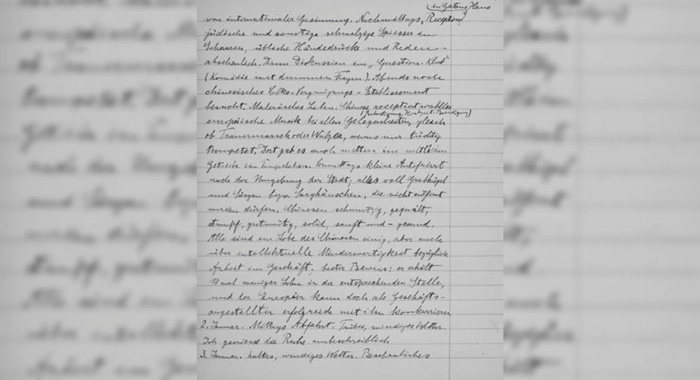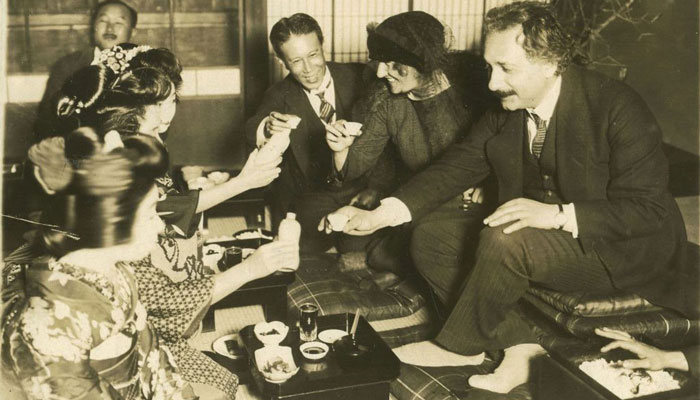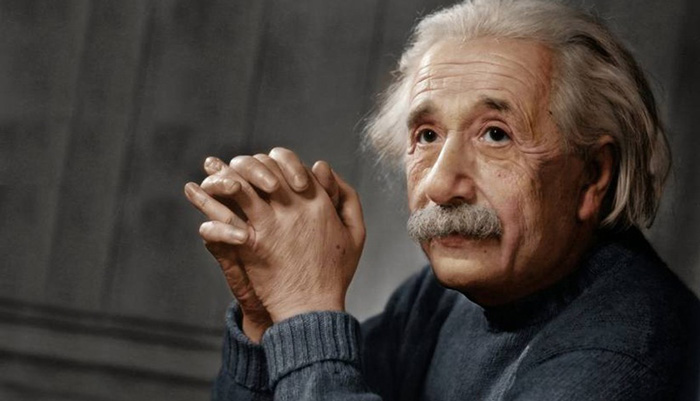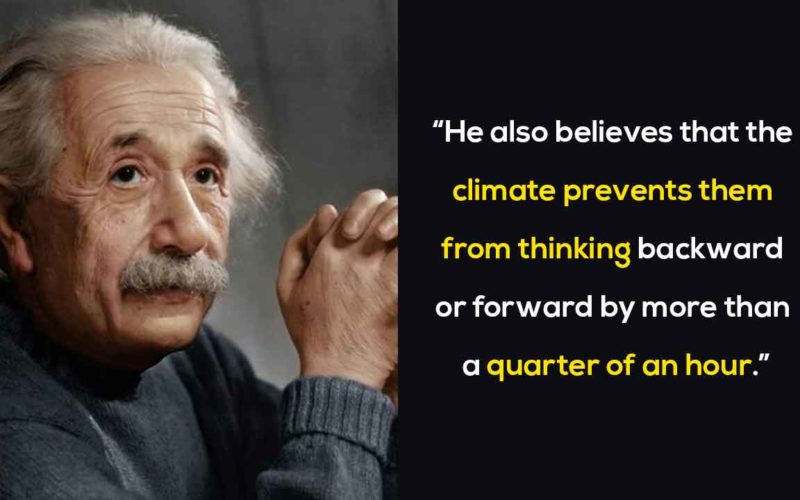Einstein is hailed as one of the most brilliant minds of all time. His work in theoretical physics accelerated our advances in technology by immeasurable quantities. And a brilliant mind is not the only aspect he is praised for. As a notable humanitarian, he has time and again spoken against racism. He once spoke of his intolerance towards racism as “Being a Jew myself, perhaps I can understand and empathise with how black people feel as victims of discrimination.”
In 1946, he addressed the students at Lincoln University as such:
“There is separation of colored people from white people in the United States. That separation is not a disease of colored people. It is a disease of white people. I do not intend to be quiet about it.”
However, recent revelations show a different side of Albert Einstein.

The icon had kept journals of his travels across Asia in the 1920s. These journals, which were originally in German, have now been translated into English and published for the first time.
The journals, published as “The Travel Diaries of Albert Einstein” by Princeton University Press, reveal that Einstein had previously held racist views about people from India, China, Sri Lanka and Japan.

According to a report by India Today, the journals contain evidence of Einstein having been of the opinion that Indians were intellectually inferior.
Ze’ev Rosenkranz, the editor of the book that compiles Albert Einstein’s travel diaries, writes in the introduction:
“Einstein also believes that ‘the climate prevents them from thinking backward or forward by more than a quarter of an hour’, an attitude that reveals both Einstein’s belief in geographical determinism and in the Indians’ alleged intellectual inferiority.”
He is also of the opinion that, Einstein attributed this alleged stoicism of Indians to the geographical determination with the physicist’s further comment: “Wouldn’t we too, in this climate, become like the Indians?”
Rosenkranz notes that these recent revelations are in stark contrast to Einstein’s humanitarian persona.

The Guardian quotes Rosenkranz as such:
“I think a lot of comments strike us as pretty unpleasant. They’re kind of in contrast to the public image of the great humanitarian icon. I think it’s quite a shock to read those and contrast them with his more public statements. They’re more off guard, he didn’t intend them for publication.”
He speculates that it is likely that Einstein later became more enlightened about his xenophobic views.
It is, however, important to realise that our understanding of Einstein misses his complexity as a human being, adds Rosenkranz.

He further explains his statement by saying:
“One should emphasize the different elements and contradictory elements in the statements that he made and in his personality. On one hand, he was very generous and very favorable. … But there’s also these statements that one should not ignore.”
These revelations if true, make us rethink the image of this scientific visionary. Icons are most often than not, pictured as idols who could do no wrong. However, recent times have brought the ugly side of many well-known personalities to light. Last month it was Morgan Freeman and now it is Einstein. It does make you wonder if anyone or anything is sacred anymore doesn’t it?




